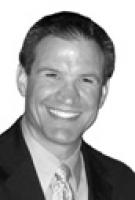With Or Without Climate Change, We Must Be Good Stewards
I graduated college in 1992. The big issues of the day were the War in the Persian Gulf, Apartheid, and the looming danger of the hole in the ozone layer. I’ve been thinking a lot lately about the latter. A story in the Chicago Tribune from 1992 described a perceived urgency:
“Scientists who have studied the depletion of the Earth`s ozone layer have predicted that even if immediate action is taken to stop its causes, the process will continue for years-perhaps decades-and may get worse. There is disturbing new evidence confirming this, increasing the urgency to accelerate efforts to halt this global environmental threat.” (Feb. 9, 1992)
I find it interesting that I have not heard about this since … well, the 90’s. Yet the ozone hole, said environmental scientists, was a matter of grave concern, one that would imminently affect us all, even with immediate action.
I suppose this is one reason I tend to have a healthy skepticism about some climate change warnings. Frankly, the models used to predict increases in CO2, methane and water vapor are just too delicate to be of much real use, and the 1990’s warnings of ozone depletion are a good example. But, with this being said, I find some of my climate prejudices being challenged by two unlikely sources: Pope Francis and St. John Paul II.
Recently, a television personality bragged that he enjoyed opening up his house’s windows on hot days and blasting the AC to show climate change advocates his disdain. As Catholics, this should anger us. God has called us to care for Creation, and those whose selfish actions negatively affect the lives of others are acting unjustly. Pope Francis echoed this responsibility in a 2014 statement to the Diplomatic Core:
“…I wish to mention another threat to peace, which arises from the greedy exploitation of environmental resources. Even if ‘nature is at our disposition’, all too often we do not ‘respect it or consider it a gracious gift which we must care for and set at the service of our brothers and sisters, including future generations. Here too what is crucial is responsibility on the part of all in pursuing, in a spirit of fraternity, policies respectful of this earth which is our common home.”
Yet we live in a Postmodern society where moral individualism and relativism run rampant. Especially the young are prone to such illogical thought, believing that something can be true for one person but false for another. Naturally, few ever take this to its logical conclusion – that such a belief means there can be no objective truth; hence, no one can speak with certainty about anything, even climate change. Obviously, we know there are laws that govern nature that are anything but conventional; and as Catholics, we are called to justly and charitably conduct ourselves in this world so as not to unnecessarily harm others. St. John Paul II addressed this in Evangelium Vitae:
“In fact, the dominion granted to man by the Creator is not an absolute power, nor can one speak of a freedom to use and misuse, or to dispose of things as one pleases. The limitation imposed from the beginning by the Creator himself and expressed symbolically by the prohibition not to 'eat of the fruit of the tree' (Gen 2:16-17) shows clearly enough that, when it comes to the natural world, we are subject not only to biological laws but also to moral ones, which cannot be violated with impunity (42).”
We tend to hear the loudest voices regarding environmental action coming from political groups with vested interests. For us, however, the call is much simpler, more direct, and it comes from God: We have been entrusted as stewards of Creation, and we must work, both individually and corporately, toward moral use of nature and its resources. Should we react with horror at each new statement on climate change? No, but we should examine our own actions to see if we are being responsible stewards, and we should attempt to make this world a safer, cleaner place today, and in the future.
Not being a climatologist, I can’t determine if contemporary climate change warnings are more credible than those of the 1990s. I can, however, see that I harm others when I waste resources, and I can’t reconcile that with my call to good stewardship. Perhaps personal reflection on the writings of the Church would provide a better starting point for real discussion on climate change than dire warnings driven by special interest groups.


